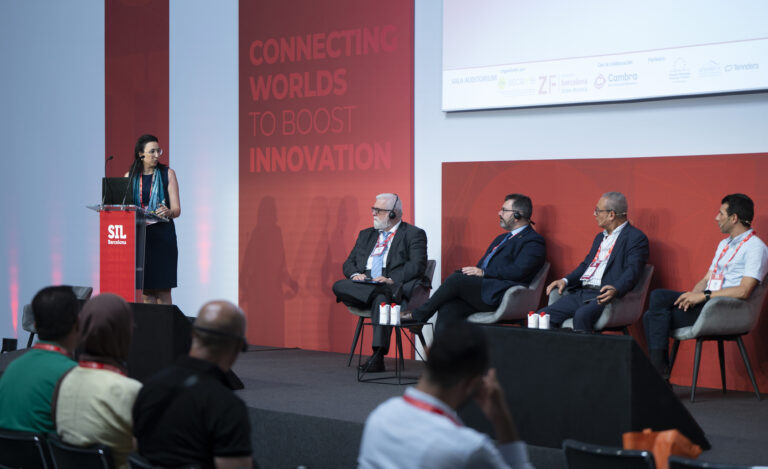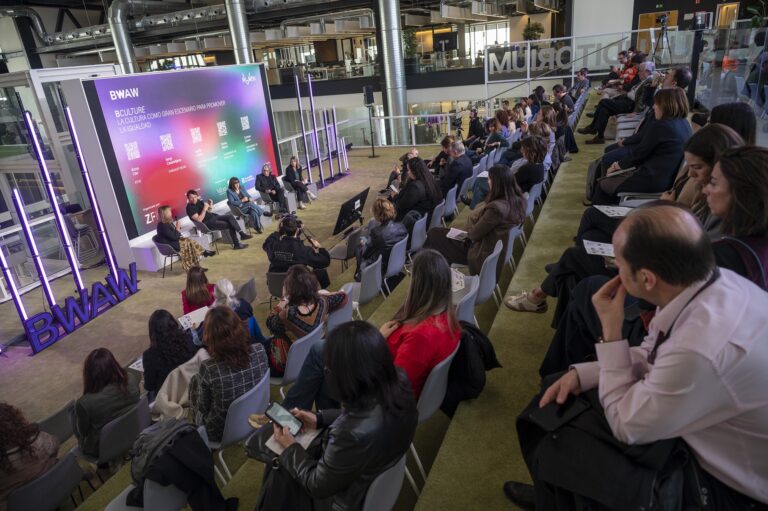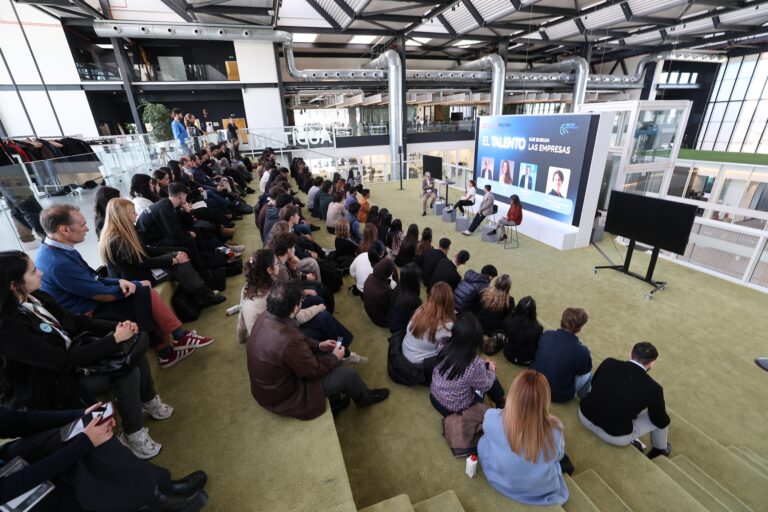MedaLogistics 2025 explores emerging opportunities amid a transforming logistics landscape

25 de June de 2025
- The 21st edition of MedaLogistics, celebrated on the 18th and 19th of June as part of SIL Barcelona, brought together leading figures, CEOs, and experts from the three continents -Europe, Africa, and Middle East- to discuss and analyse future challenges and explore new business opportunities.
- Under the theme ‘Imagining the Mediterranean Logistics Future’, this year’s summit focused on the future challenges that will transform the sector and create new business opportunities, such as sustainability, digitalization, supply chain diversification, and investment in new infrastructures.
- This edition was shaped by the impact of ongoing geopolitical tensions in the Middle East and the trade and tariff war initiated by the United States, which continue to affect the logistics and transport sectors.
Barcelona, 25th June 2025.- MedaLogistics 2025, the Mediterranean’s leading summit on logistics, transport and supply chain, consolidated as the main platform for reflection, connection, and investment for the Mediterranean logistics community, bringing together companies, experts, and influential figures from the sector to delve into the present and future of the industry and boost regional and global trade. This year’s edition, the number 21, was held on the 18th and 19th of June at Fira Barcelona, within the framework of SIL Barcelona. The summit was organised by the Association of Mediterranean Chambers of Commerce (ASCAME) and the Consorci de la Zona Franca de Barcelona (CZFB).
Under the theme “Imagining the Mediterranean Logistic Future”, all the sessions focused on analysing from different sectors and cultures the most innovative solutions to face new challenges in the logistics industry, as well as exploring emerging opportunities and business connections that will drive the industry’s evolution in the coming years. According to Mr. Anwar Zibaoui, ASCAME’s General Coordinator, “this new edition of MedaLogistics was not just another event, but a turning point to establish a new roadmap for the coming years in the logistics and the transports sector, to discuss and analyse initiatives and solutions that promote resilience in a constantly evolving global landscape, and to reposition the Mediterranean as the major logistics platform for east-west flows and the best option for channelling goods between Asia, Africa, and Europe”.
This edition was shaped by the impact of ongoing geopolitical tensions in the Middle East and the trade and tariff war initiated by the United States, which continue to affect the logistics and transport sectors. To this regard, Mr. Zibaoui shared the following reflection on the welcome session: “Geopolitics has become a determining factor in economic decisions, with growing tensions between the United States and China, challenges to multilateral agreements and protracted conflicts in Ukraine, Gaza and the Red Sea, now joined by the war between Israel and Iran. Despite this complex scenario, trade flows continue to grow. We are not witnessing de-globalization, but a reconfiguration of international trade towards greater regionalization. Supply chains are evolving; they are shortening, becoming more resilient and adopting a more responsible and sustainable approach”.
In this context, MedaLogistics has been a call to action and a vindication of the key role of the logistics industry in the Mediterranean region to compete in a global market, attract investment and improve connectivity between Europe, Africa and the Middle East. “The Mediterranean has a unique opportunity to once again become a logistics hub of global reference. To achieve this, it is necessary to promote public-private collaboration, a sustainable approach and new logistics planning that favors”, pointed out Mr. Zibaoui.
Digitalisation, Sustainability, and Regional Cooperation
MedaLogistics 2025 shed light on the trends and challenges shaping the future of logistics and transport, with a strong focus on digitalisation, sustainability, and intraregional cooperation. Panelists highlighted how AI, robotics, and automation are not only streamlining operations but increasingly replacing traditional processes. As Mr. Daniel Acosta, CEO of Grydd, noted, AI is transforming cargo optimization, demand forecasting, inventory management, and warehouse automation. Sessions also addressed the need to democratize access to technology, strengthen collaboration between academia and industry, and leverage innovation to reduce emissions.
Sustainability was a central theme, particularly in maritime logistics. Experts showcased progress in LNG adoption, electrification of ports, and solar energy initiatives. However, sports harbours remain largely unaware of the economic potential of electrification. Mr. Manel Cebrián, VP of ANBE, emphasized that these harbors could become energy hubs and achieve near self-sufficiency within 2–4 years. Regarding sustainability, rail transport also took center stage. The “EMEA Rail & Metro Projects 2025” session highlighted the EU’s goal to cut CO₂ emissions by shifting freight from road to rail. Mr. Joan Amorós, President of FERRMED, stressed the importance of integrated transport systems, while panelists acknowledged the high investment costs as a major barrier.
Public-private collaboration across Mediterranean countries was another key topic, seen as essential for improving infrastructure, enhancing interregional connectivity across the three continents, and fostering greater territorial cohesion. Representatives from Greece and Tunisia showcased successful partnerships that have modernized infrastructure, boosted trade, and positioned their ports as strategic logistics hubs.
Other key discussions included the importance of political stability as a foundation for attracting foreign investment in logistics infrastructure and transport services—particularly crucial for advancing intra-African trade. Panelists also stressed the need to invest in human capital by equipping professionals with the skills, knowledge, and decision-making capabilities required to navigate the sector’s evolving challenges. Additionally, the vital role of women in shaping the future of transport and logistics across the Mediterranean, Middle East, and Africa was highlighted. Empowering women in both leadership and operational roles was recognized as a driver of innovation, efficiency, and sustainable growth throughout the region.


